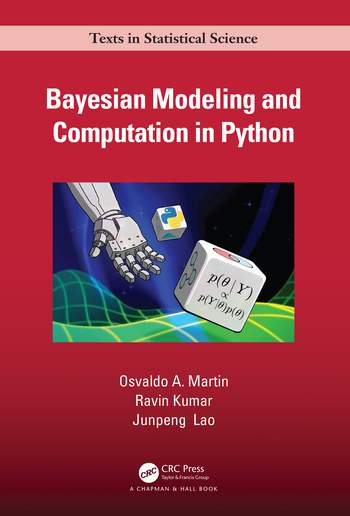The third edition of Bayesian Analysis with Python is an introduction to the main concepts of applied Bayesian inference and its practical implementation in Python using PyMC, a state-of-the-art probabilistic programming library, and ArviZ, a library for exploratory analysis of Bayesian models. Additionally, readers will also become familiar with other Bayesian libraries such as Bambi, PreliZ, and Kulprit.
Bayesian Modeling and Computation in Python aims to help beginner Bayesian practitioners to become intermediate modelers. It uses a hands on approach with PyMC, Tensorflow Probability, ArviZ and other libraries focusing on the practice of applied statistics with references to the underlying mathematical theory.
The book starts with a refresher of the Bayesian Inference concepts. The second chapter introduces modern methods for Exploratory Analysis of Bayesian Models. With an understanding of these two fundamentals the subsequent chapters talk through various models including linear regressions, splines, time series, Bayesian additive regression trees. The final chapters include Approximate Bayesian Computation, end to end case studies showing how to apply Bayesian modelling in different settings, and a chapter about the internals of probabilistic programming languages. Finally the last chapter serves as a reference for the rest of the book by getting closer into mathematical aspects or by extending the discussion of certain topics.

